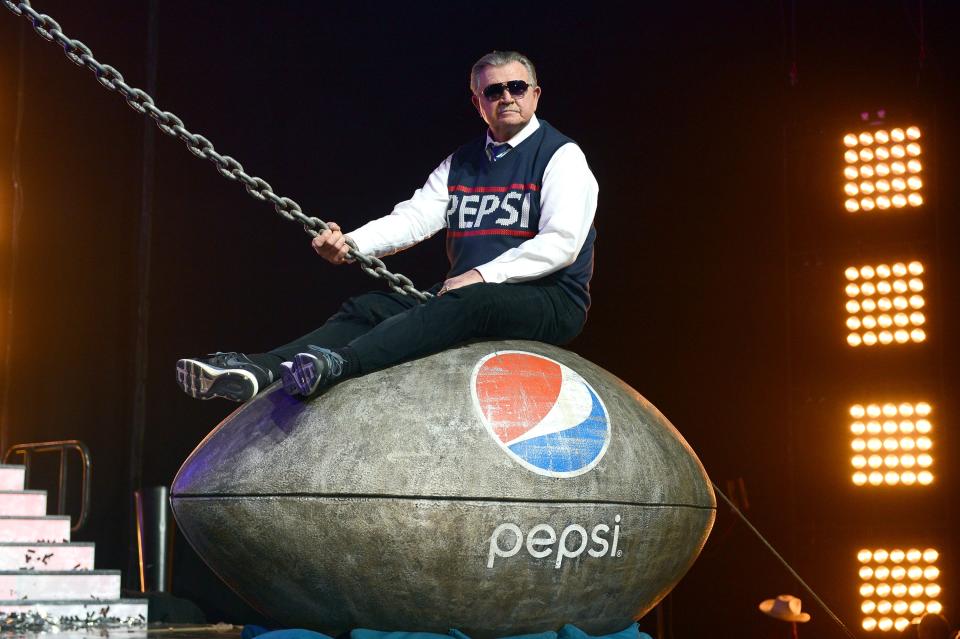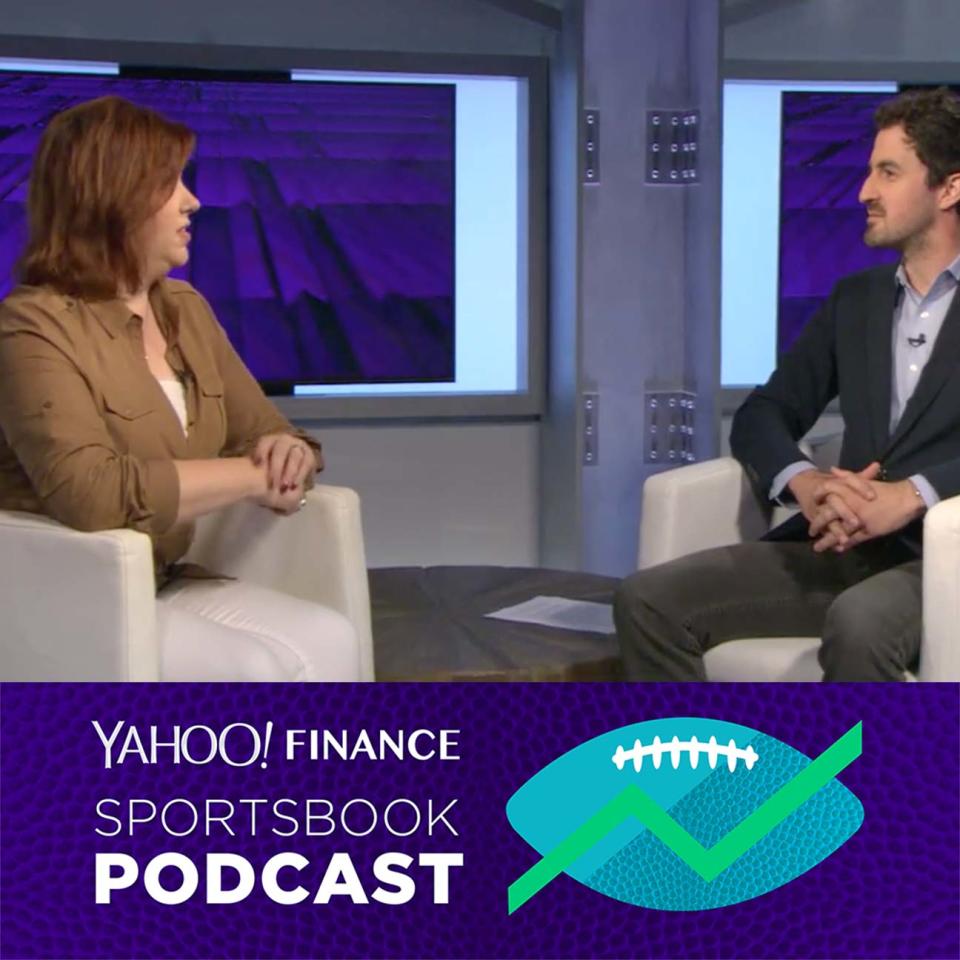'Football is football': Why NFL scandals don't matter much to corporate sponsors
One week through its new season, there’s a lot of negative noise around the National Football League.
In July, Boston University came out with a study that found brain damage in the brains of 110 of 111 deceased NFL players; a federal judge blocked the NFL’s six-game suspension of Dallas Cowboys running back Ezekiel Elliott over domestic violence; and the list keeps growing of NFL players sitting or kneeling during the national anthem to protest police brutality, following the lead of Colin Kaepernick.
But make no mistake: none of this poses any real danger to the NFL’s revenue, because none of this is enough to make any official league sponsor walk away.
“Football is football,” says Elizabeth Lindsey, a managing partner at LA-based sports marketing firm Wasserman, who advises brands that sponsor the NFL. “We have a saying in our office: ‘A billion eyeballs is a billion eyeballs.’ It’ll always continue to garner attention from the marketers, primarily because it garners that much attention from the fans.”
[Lindsey is the special guest on Episode 2 of Yahoo Finance’s new Sportsbook podcast on the business of football. You can listen here or scroll to the bottom of this post.]

The “billion eyeballs” figure could be a stretch, but not by much. It’s a popular ballpark figure for the number of people that watch any football at all every season. (111 million people watched Super Bowl 51; regular season Sunday Night Football games average 20 million viewers; playoff games average more than 35 million viewers; tens of millions of people watch on streaming services; experts toss it all together and call it a billion.)
The NFL “is a phenomenon, a juggernaut,” Lindsey says.
The league’s “official” sponsors—the partners that pay more than $1.5 billion combined per season to be at the league’s highest level of association—agree.
It’s a list that includes, this season: Anheuser-Busch InBev; Barclays; Bose; Bridgestone; Campbell’s; Castrol; Dannon; DMI; EA Sports; Extreme Networks; FedEx; Ford; Frito-Lay (PepsiCo-owned); Gatorade (PepsiCo-owned); Hyundai; Intel; Marriott; Mars; McDonald’s; Microsoft; Nationwide; New Era; News America; Nike; Papa John’s; PepsiCo; Procter & Gamble; Quaker; Sirius XM; Ticketmaster; Under Armour; USAA; Verizon; Visa; and Zebra. Of those, Lindsey works closely with Microsoft, Nationwide, and Pepsi.

That’s not to say that NFL sponsors need not monitor news, and adapt to recent change. They must, and Lindsey acknowledges that in some ways, they aren’t.
One example: the shift in television consumption habits should lead sponsors to rethink the way they advertise to football fans. But “it’s not changing it as much as it should,” Lindsey says. “The ones who are paying attention—and I can’t say all of them are—but the ones who are paying attention as well as they should, they begin to realize: fans’ passion for the NFL is not going anywhere, but fans’ consumption habits of how they choose to watch the NFL is going everywhere. It’s all over the map.” (Tech companies, unsurprisingly, are “very well aware of it,” she says; business-to-business firms, or other consumer-facing brands, have been slower to innovate.)
There’s a specific example of how some sponsors are still using the same approach to football advertising they used a decade ago. Lindsey calls it “execu-whim.” It’s when a company decides, “Our CEO is a fan of so-and-so, therefore we sponsor so-and-so. and it happens without a lot of thought.” It’s easy to picture that conversation happening in a conference room: the marketing team knows that the CEO likes New York Giants quarterback Eli Manning, so the company signs him to an endorsement deal, without considering why or whether he’s the best fit. “That doesn’t happen nearly as much as it used to,” Lindsey says, but it still happens.
Another burden on sponsors is to achieve some sense of authenticity. “Fans understand the concept of inauthenticity, and sports fans in particular,” Lindsey warns. “You can smell that from a mile away. And you’ve got to be very careful to match that appropriately, because pissing off a sports fan, they get very vocal.”
Lindsey declines to point at any NFL campaign that was inauthentic, but instead looks to golf, and Buick. “No one believed that Tiger Woods drove a Buick,” she says. (She is hardly the first to mock that particular ad campaign.)
She does say that the NFL and its sponsors need to market to female fans better. “It’s a problem for all sports, quite frankly… It needs to grow,” she says. “We are well past ‘pink it and shrink it.” That phrase describing what sports merchandisers have too often done in the past: take a men’s jersey, offer it in pink and in smaller sizes.
Still, even with the risks of offending fans with a dumb, or insensitive, or patronizing ad campaign, there’s a key reason why the NFL remains the most obvious marquee sports league for corporate partners: it dominates the discussion all year round.
Lindsey describes that as “a blessing and a curse that [the NFL] brought upon themselves. They talk, they market, sell themselves as 24/7, 365, and they will sell you a calendar wheel of activities.”
The only question is whether football fans are beginning to get exhausted from that calendar wheel.
—
Daniel Roberts is the sports business writer at Yahoo Finance. Follow him on Twitter at @readDanwrite. Sportsbook is our sports business video and podcast series.
Read more:
Barstool Sports CEO: Many media outlets ‘forgot they were consumer brands’
SportsCenter anchor Jemele Hill on ESPN’s politics: ‘The athletes are dragging us here’
SportsCenter chief on ESPN’s politics: ‘Imagine Jackie Robinson happened today’
How Disney will use MLBAM to save ESPN
Inside the ugly breakup of Sports Illustrated, The Cauldron, and Chat Sports
